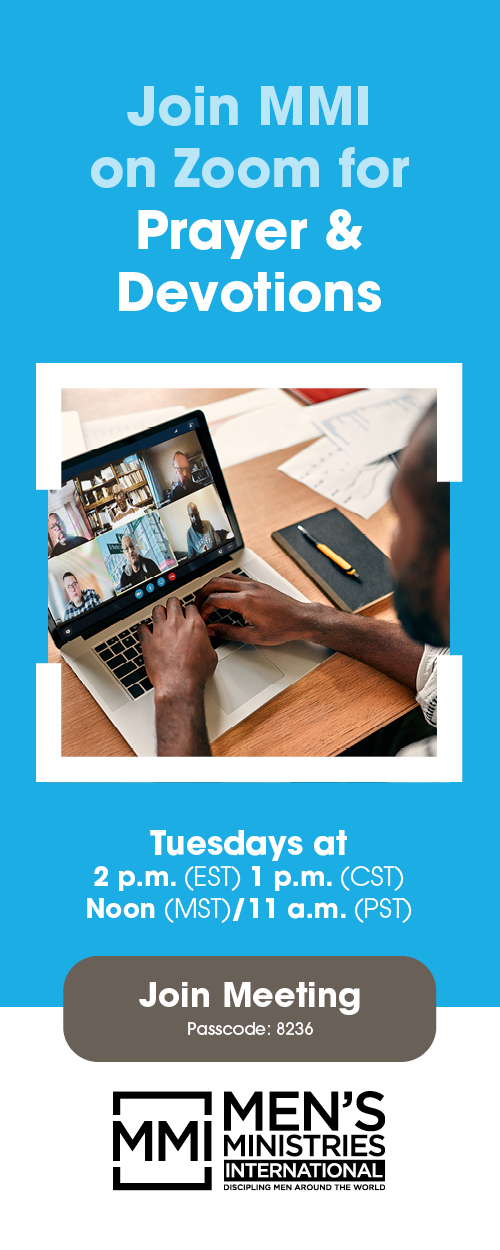
Trisha Welstad
Trisha Welstad, D.Ld., is the executive director of Leadership Center, a coaching and consulting organization that she began in 2012. She is an ordained Free Methodist pastor in the Oregon Conference and a coach with over 20 years of experience. She received a doctorate in leadership from Portland Seminary in 2020. Her background in leadership includes facilitating staff teams as the lead executive, serving as the director for leadership development in organizations in Oregon and Los Angeles, teaching at the collegiate, graduate, and doctoral level in practical leadership, and facilitating the Institute for Pastoral and Congregational Thriving at Portland Seminary as a grant writer and executive director, as well as volunteering locally with her family.
By Trisha Welstad
We recently moved, causing our family to shuffle our belongings across the city while releasing many of them to friends, neighbors, and local nonprofits. Though we had less stuff, we did not have many ways to organize in our new home.
After a visit to Ikea and some online shopping, we began the process of rebuilding, literally. We needed shelves and cupboards, a dresser and a desk. As the boxes of “ready to build” items started to arrive, I felt a bit overwhelmed. But then my 7-year-old — who had proclaimed, “God made me a builder,” at 4 years of age — began to get excited. We pulled out our adult and kid-sized tools and began to set up our space.
My kids were so into building that they would grab the hammer and just start hitting screws, bolts, nails. Then I would stop them and invite them to watch me, then set up the nails for them, and eventually they were nailing the back to the bookshelf without me. My son noted that his nails looked old once he had pounded them in while mine still looked new. We talked through the grip on a hammer and how to hold a nail to not smash your thumb. It became a fun process where I had the joy of seeing them learn something new that helped our whole family.
This is mentoring.
Mentoring is the art of coming alongside someone to help them achieve personal and strategic goals, focusing on character development and enhanced performance. It aligns with the apprenticeship model, following a see, do, be approach, where individuals observe, follow, and ultimately become developed in their character and fruitfulness.
Mentoring as Multiplying Leadership
When we began Leadership Center nearly 13 years ago, we did so to give others who were beginning to explore ministry a “taste and see” experience. Seasoned pastors and leaders could help budding ministers try on the experience in a low-risk environment. Through our hands-on internship and coaching program, interns grew their confidence and discerned their vocation.
What I really wanted for those trying on the ministry experience was to have a safe place to grow through failure and success, while also getting clear on their calling. This is what I received in ministry as a high school and college student in my local Free Methodist Church in Salem, Oregon. I had a youth pastor couple who created an internship program where I could serve and lead in new ways. There were definitely moments when I made questionable decisions — such as stuffing Twinkies full of mayo for a game — but I had room to be myself while trying on skills and experiences to clarify my vocational yeses and nos.
Of course this mentoring experience of mine multiplied, as I caught the vision of my leaders and then wanted to share it with those in my context. Eventually, I had supported hundreds of interns through the mentoring process and saw a theme emerge with many of their pastoral mentors: the need for a process for developing leaders through mentorship and internships, not to replace the pastors, but to multiply the work of the church. Rather than just receive an intern, it made sense to coach pastors and leaders toward having their own internship program. This essentially became a process where the mentoring ethos was multiplied by the system rather than by individuals.
Mentoring for the Seasoned Leader
In recent years, church ministry has undergone a remarkable transformation, challenging the traditional role of clergy within evolving congregations. Studies conducted by WorkWell Research at the University of Notre Dame have unveiled the shifting landscape of pastoral leadership. While overall job satisfaction remains relatively strong, a closer examination reveals a complex tapestry of emotions within the clergy community. Three central issues have emerged as primary challenges for pastors and leaders in today’s evolving ministry landscape. A palpable sense of professional and personal isolation, weak support structures within congregations, and the need for discernment on how to engage effectively in ministry amid rapid societal and religious changes.
_
“Guiding mentors play a pivotal role in nurturing the growth and well-being of pastors and leaders.”
_
The pressing issues coalesce around a fundamental requirement: the need for external support, community, and connection. Leaders who thrive often find themselves within communities of competent practice, where they access exemplars and wise guides who provide invaluable guidance. These guiding mentors play a pivotal role in nurturing the growth and well-being of pastors and leaders.
For leaders to flourish over the many transitions, roles, and challenges they experience, a second type of mentoring is deeply important: that of similar others, those who have similar roles and responsibilities or have equivalent positions that can empathize and navigate well. These peer-mentors have different lived experiences and likely a variety of skills while being able to help one another metabolize painful experiences and provide personal support and advice on similar leadership experiences. Through leadership cohorts, 360 wellness and burnout assessments, and vocational coaching, we have seen both the development of peer-mentoring and skilled coaching to be one of the greatest supports to individuals wanting to grow in their God-given calling.
‘You will do even greater things’ (The Goal of Mentoring)
_
“While Jesus’ earthly ministry was limited to a specific time and place, the ministry of His disciples would spread across the world.”
_
When I think of the purpose of mentoring, I think of Jesus’ words in John 14:12, “You will do even greater things” (CEV). Jesus is referring to the expansion and multiplication of His ministry through His followers. While Jesus’ earthly ministry was limited to a specific time and place, the ministry of His disciples would spread across the world. Through their intentional leadership investment in their peers and those learning how to lead in the way of following Jesus, the disciples saw the kingdom of God radically expand.
We have an opportunity — regardless of whether our calling is to serve the Lord professionally as a pastor or in ministry outside the church — to offer both the see, do, be approach to those starting out and to invite peer-mentoring with those in similar roles to our own. Regardless of our success, the goal is to invite the abundance of God to flow into those who we walk alongside for the health and fruitfulness of all who are made in the image of God.
+

Trisha Welstad
Trisha Welstad, D.Ld., is the executive director of Leadership Center, a coaching and consulting organization that she began in 2012. She is an ordained Free Methodist pastor in the Oregon Conference and a coach with over 20 years of experience. She received a doctorate in leadership from Portland Seminary in 2020. Her background in leadership includes facilitating staff teams as the lead executive, serving as the director for leadership development in organizations in Oregon and Los Angeles, teaching at the collegiate, graduate, and doctoral level in practical leadership, and facilitating the Institute for Pastoral and Congregational Thriving at Portland Seminary as a grant writer and executive director, as well as volunteering locally with her family.










Trackbacks/Pingbacks